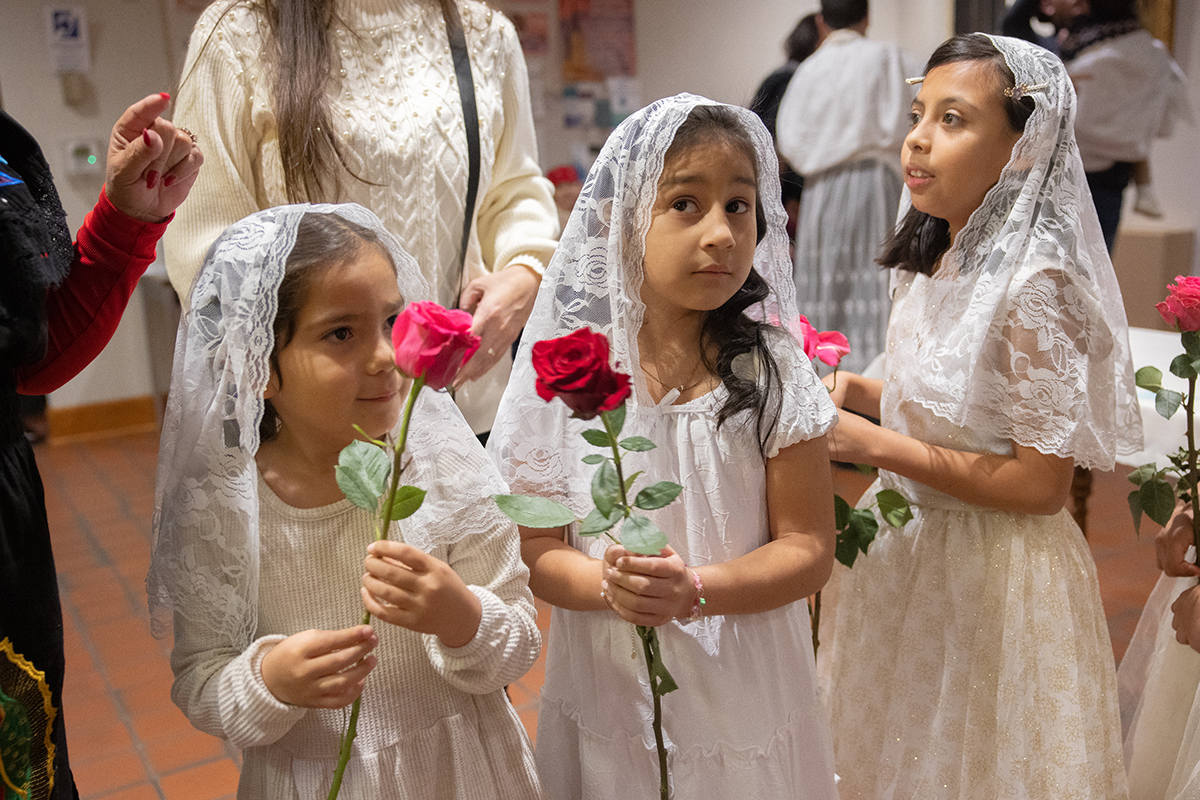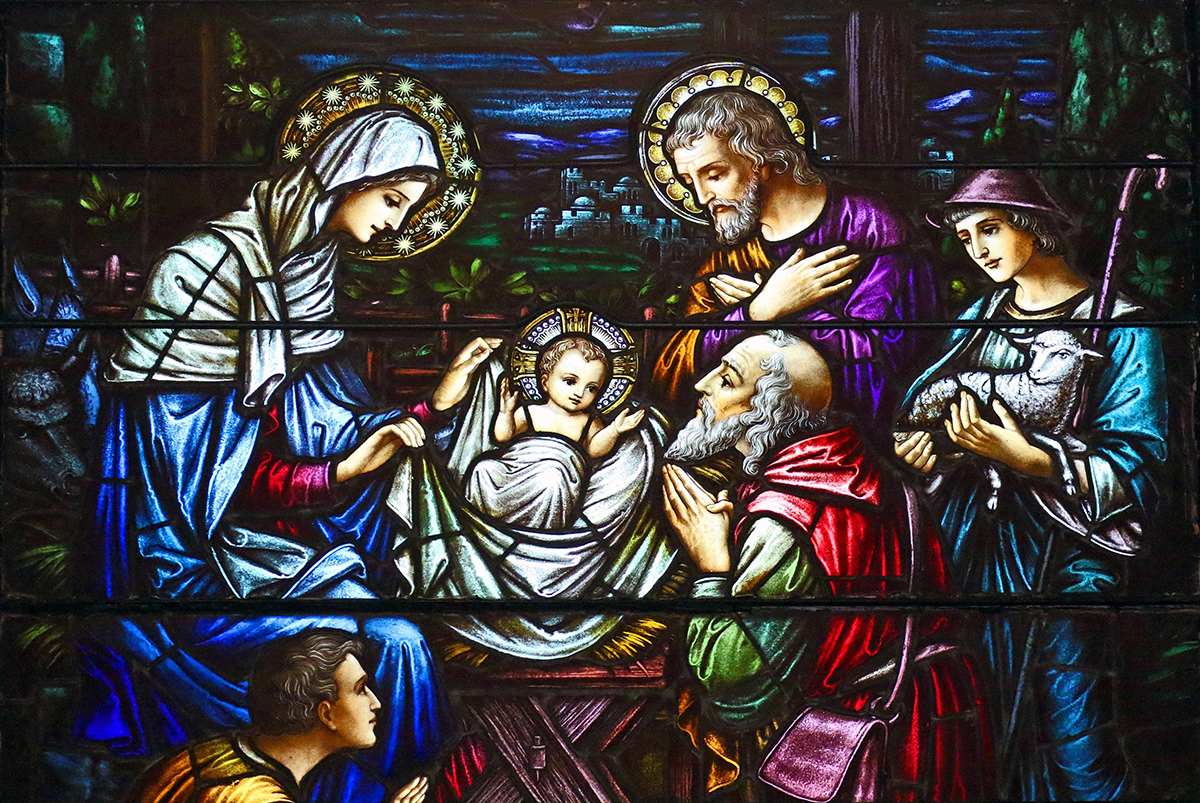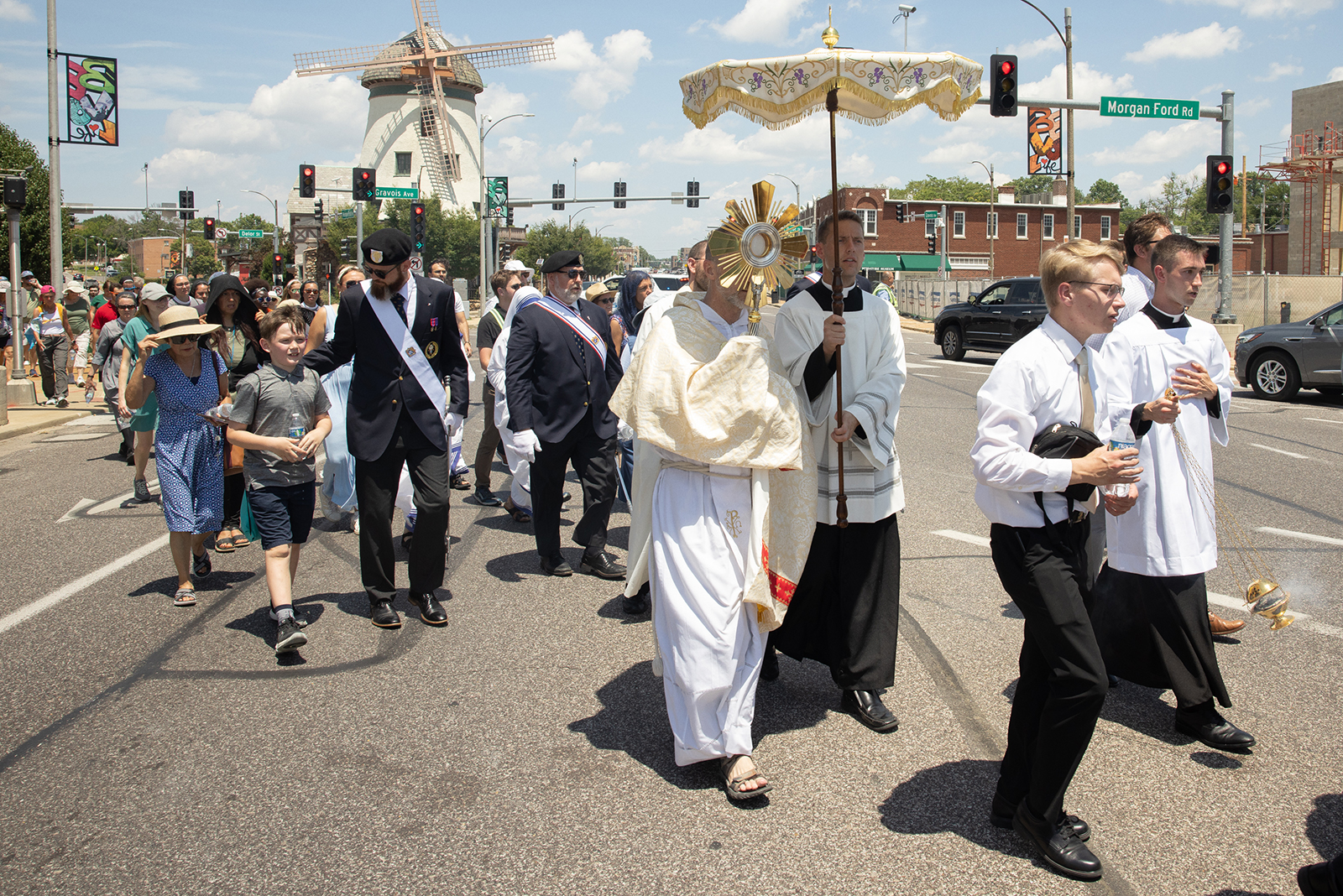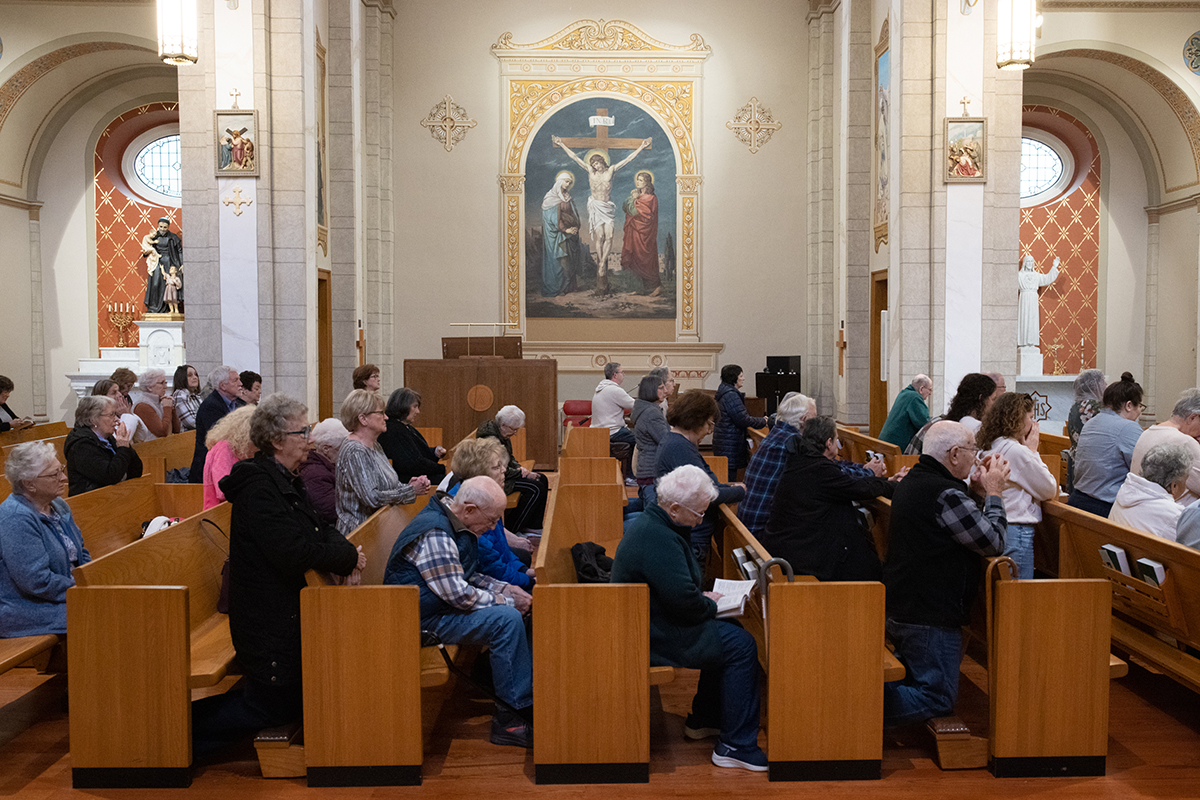Spiritual communion is asking God for grace when we’re unable to receive the Eucharist
St. Thomas Aquinas described spiritual communion as “an ardent desire to receive Jesus in the most holy sacrament and lovingly embrace Him” at a time or in circumstances when we cannot receive Him in sacramental Communion.
In his encyclical, “Ecclesia de Eucharistia” (“A Eucharistic Church”), in 2003, Pope John Paul II encouraged the practice of spiritual communion, noting that it “has been a wonderful part of Catholic life for centuries and recommended by saints who were masters of the spiritual life.”
It doesn’t matter when or where you are, as long as you practice the devotion with “renewed faith, reverence, humility and in complete trust in the goodness of the Divine Redeemer” and are “united to Him in the spirit of the most ardent charity,” Pope Pius XII said in his encyclical “Mediator Dei (The Sacred Liturgy).”
Father Donald Anstoetter, director of worship and assistant professor of sacramental-liturgical theology at Kenrick-Glennon Seminary in Shrewsbury, said that given the circumstances of not being able to attend Mass, people should seek to be as united as possible with the Church’s prayer.
Father Anstoetter suggested studying the readings for the day. “Ultimately,” he said, “the prayer is about asking the Lord to give you the same graces as if receiving Holy Communion. He can give these graces even if we’re not receiving the Eucharist physically.”
Spiritual Communion Prayer
My Jesus, I believe that you are present in the Most Holy Sacrament.
I love you above all things and I desire to receive you in my soul.
Since I cannot at this moment receive you sacramentally,
Come at least spiritually into my heart.
I embrace you as if you were already there
And unite myself wholly to you.
Never permit me to be separated from you.
Amen.





